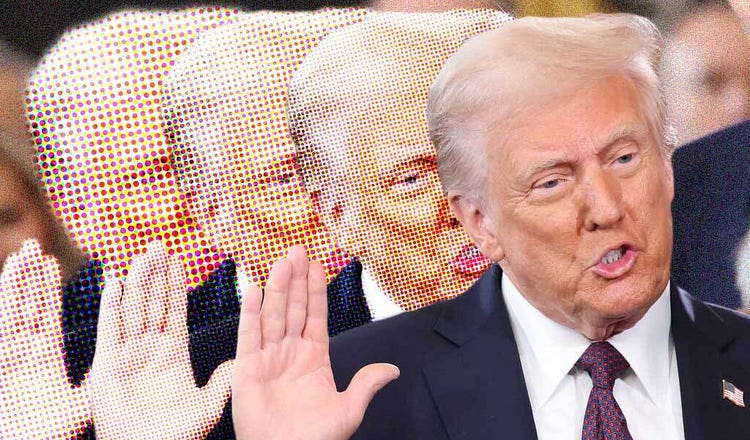
In 2000, columnist Patrick J. Buchanan defeated Donald Trump for the Reform Party nomination. But it was the property developer and television star who, more than a decade later, brought Buchanan’s populist views on trade, immigration, and nonintervention into the White House. “The ideas made it, but I didn’t,” Buchanan told journalist Tim Alberta in 2017. Such are the wages of political prophecy.
If Buchanan prefigured President Trump’s first-term nationalism, another thinker anticipated Trump’s second-term war against the administrative state and sweeping revision of American foreign policy: international relations professor Angelo Codevilla.
Codevilla died in 2021, but his ideas endure. His core insight, developed in a 2010 essay and in subsequent books and publications, was that a progressive ruling class based on a sense of social superiority had captured government and academia and large parts of the business sector and waged war against ordinary Americans to maintain and expand its power. The result, Codevilla said, was an increasingly oppressive centralized bureaucracy immune to supervision, and an American empire that failed to keep Americans safe.
Today’s political vocabulary—“ruling class,” “administrative state,” “Deep State,” “cold civil war,” “uniparty”—comes from Codevilla’s pen. One sees Codevilla’s influence everywhere, from Trump’s reversal of DEI and affirmative action to DOGE’s unspooling of USAID to reductions in the federal workforce to the foreign-policy pivot toward our own hemisphere. Friends and participants in his seminars, such as Office of Management and Budget director Russell Vought, State Department director of policy planning Michael Anton, and State Department counselor Michael Needham, serve in the administration. They are busy enacting his critique of America, with unpredictable consequences.

